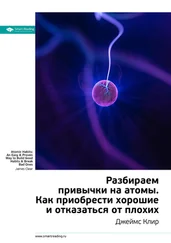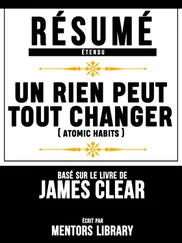The brain’s tendency to prioritize the present moment means you can’t rely on good intentions. When you make a plan—to lose weight, write a book, or learn a language—you are actually making plans for your future self. And when you envision what you want your life to be like, it is easy to see the value in taking actions with long-term benefits. We all want better lives for our future selves. However, when the moment of decision arrives, instant gratification usually wins. You are no longer making a choice for Future You, who dreams of being fitter or wealthier or happier. You are choosing for Present You, who wants to be full, pampered, and entertained. As a general rule, the more immediate pleasure you get from an action, the more strongly you should question whether it aligns with your long-term goals.*
With a fuller understanding of what causes our brain to repeat some behaviors and avoid others, let’s update the Cardinal Rule of Behavior Change: What is immediately rewarded is repeated. What is immediately punished is avoided.
Our preference for instant gratification reveals an important truth about success: because of how we are wired, most people will spend all day chasing quick hits of satisfaction. The road less traveled is the road of delayed gratification. If you’re willing to wait for the rewards, you’ll face less competition and often get a bigger payoff. As the saying goes, the last mile is always the least crowded.
This is precisely what research has shown. People who are better at delaying gratification have higher SAT scores, lower levels of substance abuse, lower likelihood of obesity, better responses to stress, and superior social skills. We’ve all seen this play out in our own lives. If you delay watching television and get your homework done, you’ll generally learn more and get better grades. If you don’t buy desserts and chips at the store, you’ll often eat healthier food when you get home. At some point, success in nearly every field requires you to ignore an immediate reward in favor of a delayed reward.
Here’s the problem: most people know that delaying gratification is the wise approach. They want the benefits of good habits: to be healthy, productive, at peace. But these outcomes are seldom top-of-mind at the decisive moment. Thankfully, it’s possible to train yourself to delay gratification—but you need to work with the grain of human nature, not against it. The best way to do this is to add a little bit of immediate pleasure to the habits that pay off in the long-run and a little bit of immediate pain to ones that don’t.
HOW TO TURN INSTANT GRATIFICATION TO YOUR ADVANTAGE
The vital thing in getting a habit to stick is to feel successful—even if it’s in a small way. The feeling of success is a signal that your habit paid off and that the work was worth the effort.
In a perfect world, the reward for a good habit is the habit itself. In the real world, good habits tend to feel worthwhile only after they have provided you with something. Early on, it’s all sacrifice. You’ve gone to the gym a few times, but you’re not stronger or fitter or faster—at least, not in any noticeable sense. It’s only months later, once you shed a few pounds or your arms gain some definition, that it becomes easier to exercise for its own sake. In the beginning, you need a reason to stay on track. This is why immediate rewards are essential. They keep you excited while the delayed rewards accumulate in the background.
What we’re really talking about here—when we’re discussing immediate rewards—is the ending of a behavior. The ending of any experience is vital because we tend to remember it more than other phases. You want the ending of your habit to be satisfying. The best approach is to use reinforcement , which refers to the process of using an immediate reward to increase the rate of a behavior. Habit stacking, which we covered in Chapter 5, ties your habit to an immediate cue, which makes it obvious when to start. Reinforcement ties your habit to an immediate reward, which makes it satisfying when you finish.
Immediate reinforcement can be especially helpful when dealing with habits of avoidance , which are behaviors you want to stop doing. It can be challenging to stick with habits like “no frivolous purchases” or “no alcohol this month” because nothing happens when you skip happy hour drinks or don’t buy that pair of shoes. It can be hard to feel satisfied when there is no action in the first place. All you’re doing is resisting temptation, and there isn’t much satisfying about that.
One solution is to turn the situation on its head. You want to make avoidance visible. Open a savings account and label it for something you want—maybe “Leather Jacket.” Whenever you pass on a purchase, put the same amount of money in the account. Skip your morning latte? Transfer $5. Pass on another month of Netflix? Move $10 over. It’s like creating a loyalty program for yourself. The immediate reward of seeing yourself save money toward the leather jacket feels a lot better than being deprived. You are making it satisfying to do nothing.
One of my readers and his wife used a similar setup. They wanted to stop eating out so much and start cooking together more. They labeled their savings account “Trip to Europe.” Whenever they skipped going out to eat, they transferred $50 into the account. At the end of the year, they put the money toward the vacation.
It is worth noting that it is important to select short-term rewards that reinforce your identity rather than ones that conflict with it. Buying a new jacket is fine if you’re trying to lose weight or read more books, but it doesn’t work if you’re trying to budget and save money. Instead, taking a bubble bath or going on a leisurely walk are good examples of rewarding yourself with free time, which aligns with your ultimate goal of more freedom and financial independence. Similarly, if your reward for exercising is eating a bowl of ice cream, then you’re casting votes for conflicting identities, and it ends up being a wash. Instead, maybe your reward is a massage, which is both a luxury and a vote toward taking care of your body. Now the short-term reward is aligned with your long-term vision of being a healthy person.
Eventually, as intrinsic rewards like a better mood, more energy, and reduced stress kick in, you’ll become less concerned with chasing the secondary reward. The identity itself becomes the reinforcer. You do it because it’s who you are and it feels good to be you. The more a habit becomes part of your life, the less you need outside encouragement to follow through. Incentives can start a habit. Identity sustains a habit.
That said, it takes time for the evidence to accumulate and a new identity to emerge. Immediate reinforcement helps maintain motivation in the short term while you’re waiting for the long-term rewards to arrive.
In summary, a habit needs to be enjoyable for it to last. Simple bits of reinforcement—like soap that smells great or toothpaste that has a refreshing mint flavor or seeing $50 hit your savings account—can offer the immediate pleasure you need to enjoy a habit. And change is easy when it is enjoyable.
Chapter Summary
The 4th Law of Behavior Change is make it satisfying .
We are more likely to repeat a behavior when the experience is satisfying.
The human brain evolved to prioritize immediate rewards over delayed rewards.
The Cardinal Rule of Behavior Change: What is immediately rewarded is repeated. What is immediately punished is avoided.
To get a habit to stick you need to feel immediately successful—even if it’s in a small way.
The first three laws of behavior change— make it obvious, make it attractive, and make it easy —increase the odds that a behavior will be performed this time. The fourth law of behavior change— make it satisfying —increases the odds that a behavior will be repeated next time.
Читать дальше




![Джеймс Клир - Атомные привычки [Как приобрести хорошие привычки и избавиться от плохих]](/books/403243/dzhejms-klir-atomnye-privychki-kak-priobresti-horosh-thumb.webp)



